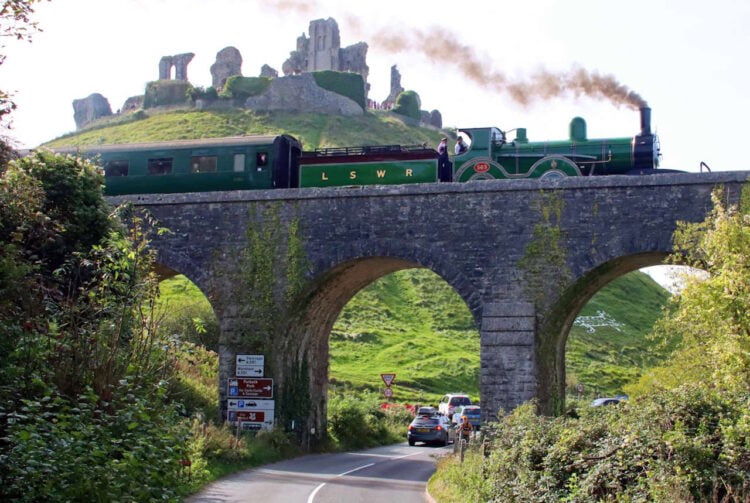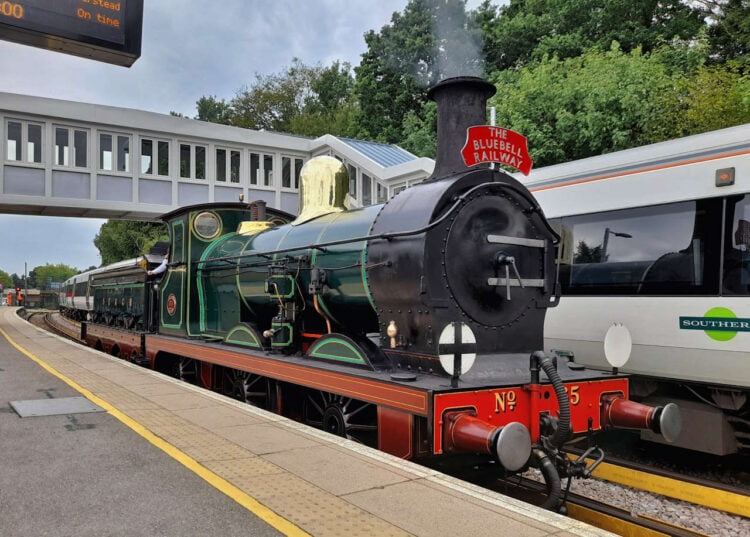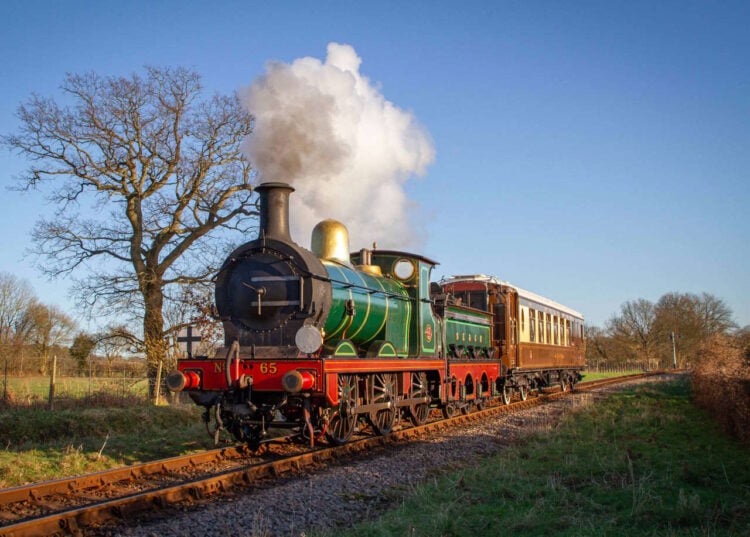To celebrate its Victorian heritage, the Swanage Railway is to hold a Victorian Weekend where two steam locomotives from the 1800s will haul the trains, with staff hopefully dressed in period costume.
From Friday, 22 to Sunday, 24 March 2024, the Victorian Weekend will see an intensive steam train service operating between Norden and Swanage, with a total of four steam locomotives operating throughout the weekend.

Representing the Victorian era will be London and South Western Railway T3 class No. 563 and South Eastern and Chatham Railway 01 class No. 65.
T3 Class No. 563 was built in 1893 and after being donated to the Swanage Railway Trust by the National Railway Museum in 2017, it underwent an intensive six-year restoration.

01 class No. 65 was built in 1896 and withdrawn by British Railways in 1961, and is normally based at the Bluebell Railway.
From the 20th century, there will be Southern Railway U class steam locomotive No. 31806 built in the 1920s and Southern Railway Bulleid Pacific West Country class steam locomotive No. 34028 Eddystone built in the 1940s.
Next to Norden station, the Purbeck Mining Museum will celebrate the Victorian narrow-gauge railway system that helped to carry ball clay from the mines at Furzebrook and Norden for export to the potteries in the Midlands.

“Our Victorian Weekend will be an evocative and enjoyable three-day celebration of the ambitious and pioneering era that built the Swanage Railway in the 1880s.
“It will be wonderful to see two charming Victorian steam locomotives hauling the trains through the Isle of Purbeck – between Norden, Corfe Castle, Harman’s Cross, Herston and Swanage – along with steam locomotives dating from the 1920s and the 1940s.
“It was the drive and enterprise of the dynamic and determined Victorians that gave us the railway system that we depend on, and enjoy, today including the Swanage Railway.
“The ambitious Victorian builders of the Swanage Railway built an iron girder viaduct across the River Frome south of Wareham as well as a beautifully proportioned Purbeck stone four-arched viaduct at Corfe Castle and a cutting that was blasted with dynamite through the chalk of the Purbeck Hills below the castle ruins.
“It took determined Purbeck businessmen almost 40 years of campaigning to eventually build a ten-mile branch line railway from a mile south of Wareham to Corfe Castle and Swanage in the mid-1880s replacing the horse and cart with the faster, and cheaper, steam train.
“Work started on building the Swanage branch line during June, 1883 starting at both ends of the line, at Swanage and at Worgret, a mile south of Wareham on the London to Dorchester main line with the first train running from Swanage to Wareham in May, 1885.
“Watching, and riding behind, the LSWR T3 No. 563 and the SECR 01 class No. 65 from the Bluebell Railway will transport our visitors back to the Victorian period of enterprise, development and optimism as railways replaced the horse and cart as well as our waterways,” added Robert who is a volunteer station porter on the Swanage Railway.
Volunteer Swanage Railway Company commercial director Robert Patterson






Responses